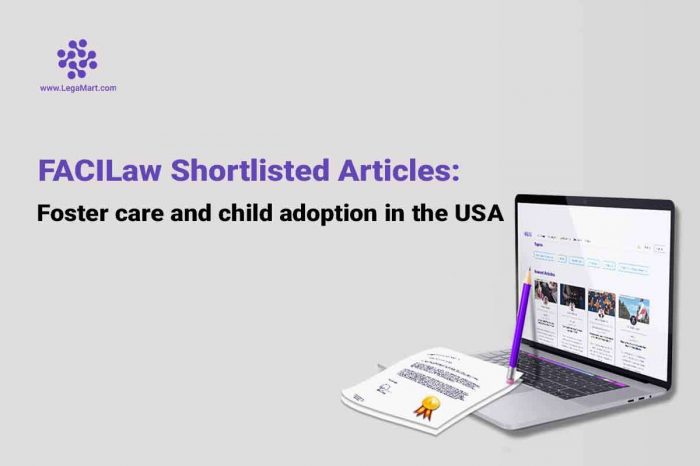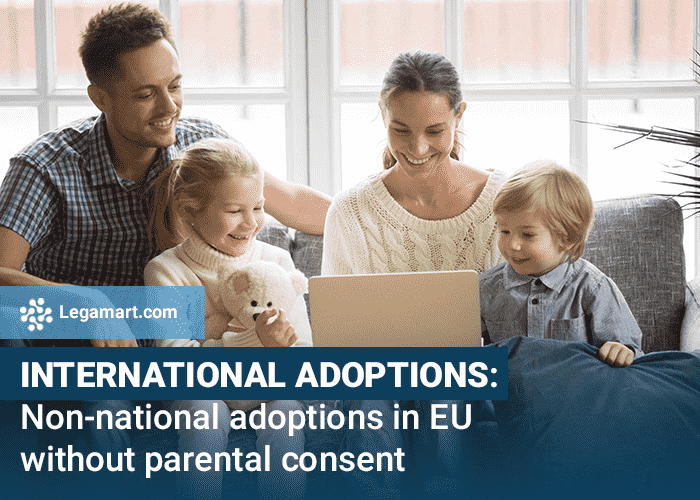International adoption
Adopting a child internationally is a noble act, and it requires navigating complex legal procedures that differ between countries. International legal issues may arise when the legal systems of the home country and host country conflict. Adoptive parents may have to comply with specific regulations, such as background checks or home visits, that may vary depending on the country. Moreover, international adoption can also lead to the complicated legal processes involving immigration and citizenship. Diaspora/expats who are interested in international adoption should seek legal advice and ensure that they understand the legal implications of the adoption in both their home and host countries.
Find best lawyers for International adoption
Issues related to International adoption
If you’re considering adopting a child from another country, you should know a few things. The process can be lengthy and expensive, but it can also be gratifying. Here’s what you need to know about international adoption. There are many things to consider when adopting internationally. The first step is to research the various countries and programs available. Each country has different requirements, so it’s crucial to find one that is a good match for your family. Once you’ve chosen a country, you’ll need to complete the necessary paperwork and undergo a home study. During the home study process, a social worker will visit your home and evaluate your readiness to adopt. After the home study, you’ll be placed on a list of adoptive families waiting to be matched with a child. The wait time can vary depending on your adopted country (Russia currently has the shortest waits, while China has the longest). While you’re waiting, you have to choose an adoption agency. There are many reputable agencies out there that can help you through the process. Again,r research and select an agency you feel comfortable with. Once you’ve selected an agency, you’ll need to complete an application and home study. The home study is a rigorous process that includes background checks, interviews, and inspections of your home to ensure it’s safe and suitable for a child. This process can take several months. When adopting a child internationally, there are a few things to consider besides the regular legal procedures involved. For one, you must ensure that you follow the appropriate laws of the United States and the child’s country of origin. This can be complicated, as different countries have different regulations governing international adoptions. You will also need to ensure that you know the cultural differences between your family and the child you are adopting. Finally, awareness of potential scams when adopting a child internationally is essential. Unfortunately, many people attempt to take advantage of families seeking to adopt children from overseas. Be sure to do your research and only work with reputable agencies. The most important thing is to ensure that you are eligible to adopt according to the laws of both your country and the child’s country of origin. Once you have determined that you are eligible, you can begin finding a child to adopt.
The process can be complicated and expensive, but it is possible to establish guardianship of an adult relative or friend who lives in another country. It is important to note that the laws governing guardianship vary from country to country, so it is vital to work with a legal professional who understands the specific requirements in the jurisdiction where the person you are guardian resides. The following factors are typically considered when determining whether or not a guardianship arrangement will be enforced internationally:
- The child’s home country
2. Whether the child has any family ties in their home country
3. The distance between the countries in question
4. Whether the child is a citizen of both countries
5. Whether either country has previously granted custody to the other country
6. The child’s age and stage of development
7. The wishes of the child, if they are old enough to express them

Latest Articles
Opuere Odu
- September 2, 2022
Tell us more about your problem.
Please give a brief description about what it is you need to talk to our lawyers about ?
Frequently Asked Questions
What are the laws and regulations pertaining to international adoption in the UK or China for international entrepreneurs and businessmen?
The laws and regulations pertaining to international adoption in the UK or China for international entrepreneurs and businessmen can vary, but here are some general guidelines:
UK:
- Adoption law: In the UK, adoption is governed by the Adoption and Children Act 2002.
- Eligibility: In order to adopt a child from overseas, prospective adopters must have been assessed and approved to adopt domestically within the UK.
- Immigration requirements: Prospective adopters must satisfy the UK’s immigration requirements for adopting a child from overseas.
China:
- Adoption law: In China, adoption is governed by the Adoption Law of the People’s Republic of China.
- Eligibility: In China, only married couples who meet certain age and health requirements are eligible to adopt, and they must also meet other conditions set by the government.
- International adoption agencies: All international adoptions in China must be processed through government-approved agencies.
It is important for international entrepreneurs and businessmen who are considering international adoption to seek legal advice from qualified professionals in both countries to understand the laws and regulations governing the process. They should also research the specific requirements and procedures involved in adoption in the relevant country and work with reputable adoption agencies to ensure compliance with relevant regulations.
What are the legal requirements and procedures for international adoption in the UK or China?
The legal requirements and procedures for international adoption in the UK or China can vary, but here are some general guidelines:
UK:
- Assessment and approval: Prospective adopters must undergo an assessment process to determine their suitability to adopt a child, both domestically and internationally.
- Eligibility of countries: The UK government maintains a list of countries from which it is possible to adopt children. Prospective adopters must check that the country they are interested in is on this list.
- Immigration requirements: Prospective adopters must satisfy the UK’s immigration requirements for adopting a child from overseas, including obtaining a visa for the child.
China:
- Eligibility requirements: Only married couples who meet certain age and health requirements are eligible to adopt in China, and they must also meet other conditions set by the government.
- Adoption agencies: All international adoptions in China must be processed through government-approved adoption agencies.
- Home study: Prospective adopters will typically need to undergo a home study to assess their suitability as adoptive parents.
- Matching and placement: Once approved, prospective adopters will be matched with a child who is available for adoption. The placement process involves additional background checks and approvals.
It is important for international entrepreneurs and businessmen who are considering international adoption to seek legal advice from qualified professionals in both countries to understand the specific requirements and procedures involved in the adoption process. They should also work closely with reputable adoption agencies to ensure compliance with relevant regulations and to facilitate a successful adoption.
What kind of legal assistance is needed to adopt a child from overseas in the UK or China?
International entrepreneurs and businessmen who wish to adopt a child from overseas in the UK or China will likely require legal assistance. Here are some of the ways that a lawyer can support them:
UK:
- Pre-adoption assessment: A lawyer can help international entrepreneurs and businessmen navigate the pre-adoption assessment process, including ensuring that they meet the eligibility requirements and preparing them for the assessment itself.
- Immigration requirements: A lawyer can assist with obtaining the necessary visas and meeting the UK’s immigration requirements for adopting a child from overseas.
- Legal documentation: A lawyer can prepare and review legal documents related to the adoption, such as the adoption application, consent forms, and any agreements with the child’s birth family.
China:
- Eligibility requirements: A lawyer can help international entrepreneurs and businessmen understand the eligibility requirements for adoption in China, and advise them on whether they are likely to be approved.
- Adoption agency selection: A lawyer can help international entrepreneurs and businessmen choose a reputable adoption agency in China.
- Legal documentation: A lawyer can prepare and review legal documents related to the adoption, such as the adoption application, home study report, and any agreements with the child’s birth family.
It is important for international entrepreneurs and businessmen to work with qualified legal professionals who have experience in international adoption law in both the UK and China. By working with experienced lawyers, they can ensure that they comply with relevant regulations and legal requirements, and increase their chances of a successful adoption.










